#dog literature
Text


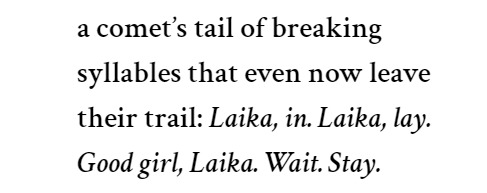
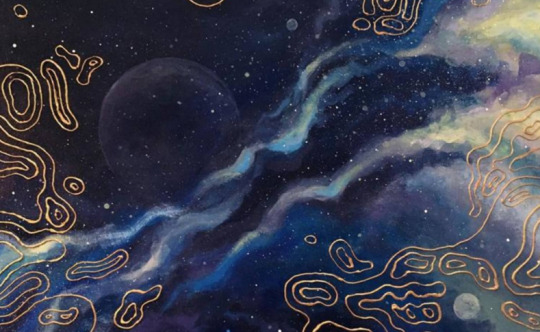
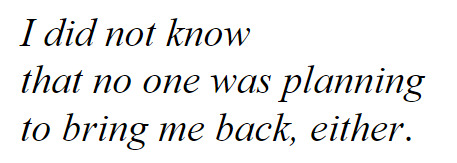
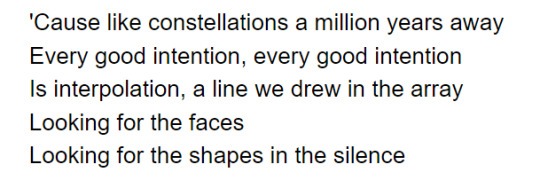

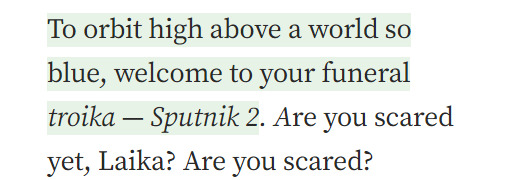

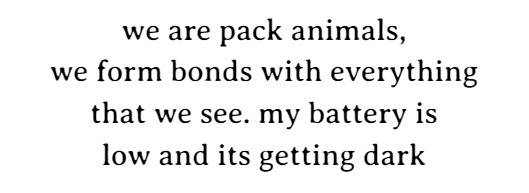


Goodnight, Laika.
Space Dog, Alan Shapiro | From Wikipedia | Laika, Sarah Doyle | Space Patterns Painting, Katya Garipova | Laika, Ben Florin | Constellations, The Oh Hellos | First Dog in Space, Brennig Davies | Are You Scared Yet, Laika?, Gus Gresham | Pillars of Creation, James Webb Telescope | space dog., Basil Sai | Icarus, The Crane Wives | Quote via. Oleg Gazenko
#web weaving#parallels#poetry#poem#laika the space dog#web weave#literature#alan shapiro#sarah doyle#ben florin#brennig davies#gus gresham#༺✿ web weaves by basil ✿༻
14K notes
·
View notes
Text

Dinosaur, Richard Siken
5K notes
·
View notes
Text

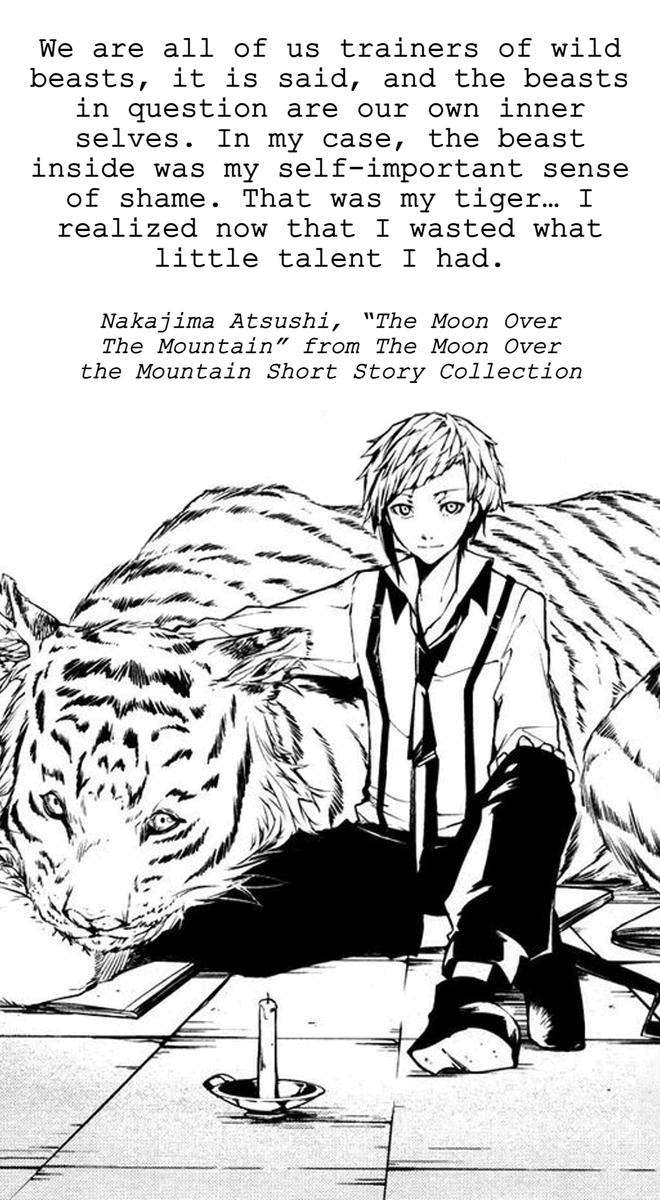








Happy New Year - 2024
To celebrate another year, I’ve put together each of these authors’ top quotes from 2023!
The authors were chosen based on the favorite Japanese authors and favorite BSD characters from the 2023 Survey.
#happy new year#bsd-bibliophile#japanese literature#bungo stray dogs#bungou stray dogs#bsd#dazai osamu#nakajima atsushi#edogawa ranpo#yosano akiko#kunikida doppo#nakahara chūya#akutagawa ryūnosuke#mori ōgai#ayatsuji yukito#oda sakunosuke
1K notes
·
View notes
Text

#pink#gender#kirby#pink panther#princess peach#courage the cowardly dog#winnie the pooh#tokyo mew mew#inside out#the wizard of oz#barbie#power rangers#spongebob#lucky star#dragon ball#sleeping beauty#snagglepuss#peppa pig#adventure time#doki doki literature club#bluey#astolfo#care bears#the amazing world of gumball#my little pony#fairly oddparents#steven universe#memes#anime memes#anime
533 notes
·
View notes
Text
Yes I dog ear the corners of my books, No I don't care when the pages of my books come out, I appreciate the signs of wear and tear, I like it when they look like they've been read and absorbed, like they've really influenced me, I like it when they look like they belong in a museum, yes we exist.
#literature#dark academia#dark acadamia aesthetic#darcy#dorian gray#jane austen#aesthetic poetry#dark academia aesthetic#light academia#art journal#books#romance books#dog ear books#chapters#main character#romance#love
1K notes
·
View notes
Text



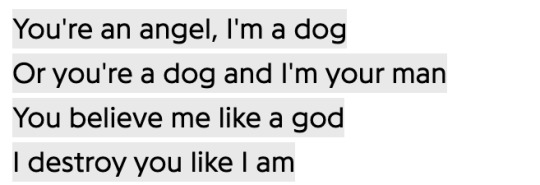

i bet on losing dogs, mitski // ? // isle of dogs, wes anderson (2018) // i'm your man, mitski // let dead dogs lie, silas melvin
#web weaving#web weave#poetry fragments#fragments#dark acadamia quotes#parallels#comparatives#lyric parallels#song lyrics#literature#lit#mitski#i bet on losing dogs#i'm your man#isle of dogs#wes anderson
551 notes
·
View notes
Text
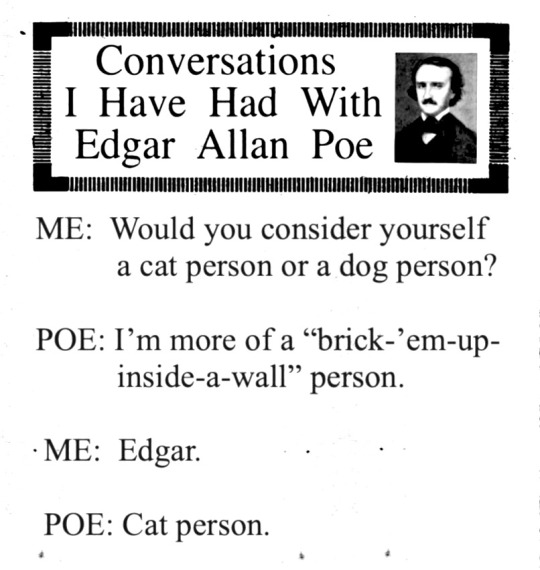
#Conversations I Have Had With Edgar Allan Poe#Edgar Allan Poe#writer#writers#author#authors#literature#books#poetry#poems#cat#cats#dog#dogs#Oh Edgar
1K notes
·
View notes
Text
I understand that literature nerd Jason Todd is kind of overblown in fanon compared to it's actual presence in canon (a few issues during his pre (and post?)crisis Robin tenure that highlight it) BUT consider that I think it's hilarious if the unhinged gun toting criminal has strong opinions on poetry
#ramblings of a lunatic#dc comics#Jason Todd#batfamily#it's just a fun quirk! it's a fun lil detail and I simply cannot slight ppl for enjoying and incorporating it into works#like obviously jason isn't the only one. I'm a big believer in the batfam having over lapping interests they refuse to bond over#i know dick canonically used the robin hood stories (which are pretty flowery in their language far as i can tell) as inspo for Robin#and i know babs was a librarian and even tho her area of nerddom is characterized as more computery she probably knows quite a lot-#-about literature as well#duke is a hobbyist writer i believe? i saw a fan mention that- which if so is great and I hope he's also a nerd#(i mean he is canonically. i remember him being a puzzle nerd in his introduction. but i mean specifically a lit nerd)#damian called Shakespeare boring but also took acting classes so i think he's more of a theatre kid.#Tim's a dropout and i don't think he's ever shown distinct interest in english lit and i can't remember for Steph?#I'm ngl my brain hyperfocused on musician Steph i forget some of her other interests I'm sorry (minus softball and gymnastics!)#and then Cass had her whole (non linear but it's whatevs) arc about literacy and learning to read#went from struggling to read in batgirl 00 to memorizing Shakespeare in 'tec and is now an avid read in batgirls!#she's shown reading edgar allen poe but we don't know if it's his short stories or his poems#point to all of the above being: i know Jason's not the only lit nerd in the batfam#but also i do need him to be writing poetry in his spare time and reading and reviewing it#jason at the next dead robins society meeting: evening folks today I'll be assigning all of us poems based on laika the space dog#damian and steph who have been kidnapped and brought to jasons warehouse to hangout: LET US GO BITCH#speaking of^ random poem i think jason would like: space dog by alan shapiro#wake up one morning in an unfamiliar more mature body with a profound sense of abandonment. the last four lines. mmm tasty
467 notes
·
View notes
Text
I’m sorry?? What?
Was reading a Wikipedia article on Mori Ōgai and apparently his daughter Mari was the “creator” of the YAOI GENRE?!?! I’m reeling.
Wtf
#japanese literature#taisho era#post meiji era#taisho literature#yaoi#mori mari#mori ougai#bsd#good for her I guess#bungou stray dogs
826 notes
·
View notes
Text
I found this really cool post about the highest-rated book by a local author in every country, and can I just say.


I love how this is foreshadowing that a day will come where Bungou Stray Dogs and Mo Dao Zu Shi will be the acclaimed literature everyone is forced to read in highschool.
#books#literature#bungo stray dogs#bsd#bsd manga#mo dao zu shi#mdzs#grandmaster of demonic cultivation#bookblr#writebrl
638 notes
·
View notes
Text
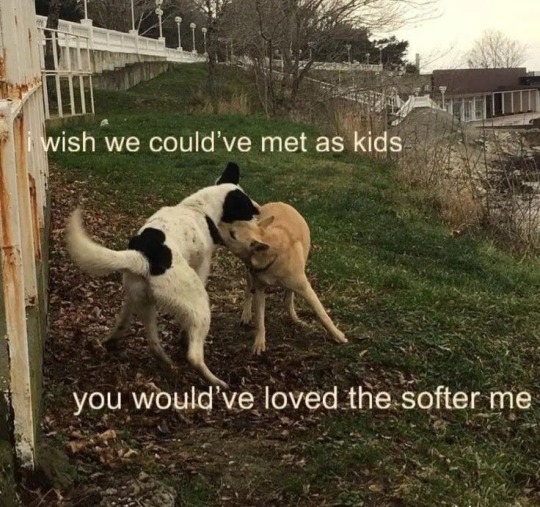
#spilled thoughts#poem#literature#love poem#poems on tumblr#poetry#dogs#nature#fall#winter#in the past#struggle#love#heartbreak#gentle#thememoryinthebackofyourhead#thethoughtinthebackofyourhead#pinterest#nostaligiacore#nostaliga#nostalgic
594 notes
·
View notes
Text
⋆ ♱ RATS IN THE DEAD HOUSE AND THE DECAY OF THE ANGEL LITERARY REFERENCES ♱ ⋆










#fyodor#bungou stray dogs#bungo stray dogs#stray gods#fyodor dostoevsky#russian literature#russian plays#bsd nikolai#bsd fyodor#bsd sigma#sigma bungou stray dogs#anime#manga#kafka asagiri#crime and punishment#decay of angels#the overcoat#dracula#bram stoker#bram bsd
650 notes
·
View notes
Note
Do you know why dogs do that little exhausted sigh when they lie down even when they haven't really done anything that particular day?
I, too, make exhausted little sighs when I flop down and am suddenly extremely comfy!
But, okay, here's what super interesting. I didn't want to just give you a flippant answer, so I started looking up if sighing is a behavior in other species than humans. Because it's always worth keeping an eye out for accidental anthropomorphism. Turns out? The science on sighing is fascinating. Stay tuned for intense nerding out, and maybe a bit more of an answer.
First off, we gotta know what a sigh is.
"The sigh is a deep augmented breath with distinct neurobiological, physiological, and psychological properties that distinguish it from a normal eupneic breath. Sighs are typically triggered by a normal eupneic breath and are followed by a respiratory pause, which is referred to as 'postsigh apnea.'"
In non-jargon, that definition means sighs are a deep breath with a different pattern to it than normal, easy, regular breathing. "Augmented breaths" are frequently used as a synonym for "sighs", and the best definition I found is that "they comprise prolonged inspiration and increased tidal volume followed by a respiratory pause and several seconds of faster breathing. So a longer than normal inhale where you take in more air than normal, then an exhale, and then pause before breathing in again. Oh hey, look, I found a graph!

The graph is super well labeled, but just to be clear: each cycle of the red line is a normal breath, where what's being tracked is the movement of the chest wall. The part where the vertical blue bar is, that's the cycle with a sigh. The red line spikes really high (during inspiration, or breathing in) at that blue patch, and for longer than the normal period of a breath. See how it's almost like two inhales on top of each other - a normal slope and then another upward spike? That's the "augmentation" of the normal breath, almost a double inhale without breathing out in-between. Then, after the red line drops (on the exhale) there's a flat bit. That's the respiratory pause, which the period after the sigh where you wait before you inhale again.
Apparently people have been tracking sighing scientific for like, over 100 years. The first record of it in academic literature was in 1919. And we know some really cool stuff. All humans sigh spontaneously. Even babies sigh! They do it every few minutes, whereas it's less frequent but still pretty regular in adults: one study found about once every five minutes, or twelve sighs an hour.
Okay, but why do we sigh? We only sort of know, because there's a bunch of different things that have to be studied to answer that question. The direct physiological aspect of it is the most well known at this point. You've got lots of little sacs lining your lungs, called alveoli, that facilitate gas transfer from the air you breathe into your blood. They make sure oxygen goes in and carbon dioxide gets breathed out. But sometimes they collapse and deflate, which prevents them from doing their job. When you do a big sigh, the air quantity in your lungs ends up being double that of normal, which inflates them again. So sighing is a way of doing lung maintenance, in a sense.
But there's so much more going on when you sigh than just that! This is the stuff researchers are still working on. They've got some pretty solid conclusions to start, but they're very emphatic that there's a ton more to learn.
Basically, the main hypothesis right now is that sighing functions as a "reset" for your internal state when it's out of balance. People sigh more when they're acutely anxious or stressed, are anticipating a negative outcome like a shock or seeing a negative image, or have chronic anxiety, PTSD, or panic disorders. Higher sigh frequency is also associated with pain: people with chronic low back pain sigh more, and how much they do correlates with how high their pain rating is at the time!
Another aspect of sighing is that it's frequently associated with periods of relief. Studies have noted that people sigh when they're able to relax following tension, like if they're interrupted while trying to do something really mentally taxing, when they finish a task that took a lot of attention for a long time, or if a negative stimulus stops/goes away. The reason behind that is actually thought to be why people sigh so much when they're upset or in pain: sighing doesn't just signal relief, but actually cause it! Some studies have found that people experience a temporary reduction in muscle tension right after a spontaneous sigh. (Unfortunately, that doesn't seem to also happen when you sigh on purpose.)
Sighing is also thought to facilitate behavioral and emotional transitions. The frequency at which someone sighs changes even just when they transition from sitting to lying down. People frequently sigh right before they fall asleep or start to wake up. One study found that people sigh more frequently when they go from a situation of being unable to anticipate what's next to a situation where they know what the outcome will be - regardless of if that outcome is going to be negative or positive! That led the researchers to hypothesize that sighing functions as an emotional reset from states of high internal arousal (a word which here means "the state of feeling awake, activated, and highly reactive to stimuli.") So sighing might not just bring relief when something really intense ends, but it might also help people prepare for upcoming stress.
Basically, researchers think that sighing may contribute to what they call "psychophysiological flexibility." That means that sighing helps keep someone in a physiological and emotional state that matches the situation they're in, and helps the body and mind adapt quickly when something changes. They noted that these types of transitions may involve "anticipatory, activation or recovery responses." In other words: they think spontaneous sighing is relevant not only when you're worried about encountering a leopard in the bush, but when you have to hide from the leopard you tripped over, and then also when you're calming down after the leopard got bored and left.
There's a whole bunch of research left to do about how exactly spontaneous sighs do what they do, but there's also a whole other aspect of the behavior that hasn't really been studied yet: their social function! In humans audible sighing is a salient social signal. (The researchers said the part of the paper addressing this that it is a "lay belief" that sighs have a "communicative function to convey emotions," which makes the whole thing feel like it was written by aliens observing humans from afar). But they did note that sighs for social communications may be totally different from other types of sighs, since the exhalation is often very exaggerated and doesn't always occur in tandem with that "augmented" inhale pattern that spontaneous sighs have.
Okay. So. I've been a nerd forever, but what about doggo sighs? Why do they occur? Obviously, the research doesn't give us a direct answer. The majority of the behavioral / situational research on sighing has been done on people, not animals. But it's pretty well documented lots of animals sigh (it might even be all mammals, I just don't have a citation for that). And some of the studies that have been done on animals indicated that they, too, sigh in relief when negative situations end or unpleasant stimuli go away.
Let's go back to my joke at the beginning of this book I've written. My first instinct was to be like "who doesn't sigh in relaxation when they finally get a chance to rest their bones?" That totally matches what's in the research: getting a chance to rest after activity is often both a behavioral transition and an emotional one, and if there's any physical discomfort being experienced, physical rest is often is a relief.
It seems fairly probable that dogs sigh when they lay down for at least one of those reasons. I can't prove that hypothesis, but it tracks with what the science says so far. The situation you described meets the main identified criteria for sighing: there's the physical transition of laying down, the behavioral/emotional transition of being ready for a period of low/no activity, and the possible relief of pain or discomfort that comes with laying down. We don't have any any evidence (that I was able to find) of species that sigh for other reasons, or sigh in situations that don't meet those criteria. We don't know for sure that this is accurate - this isn't fact, simply my educated guess. But since sighing seems to help muscles relax and relief discomfort, it seems reasonable to me that a good old sigh after the relief of laying down would make the transition to a resting state feel even better.
Sources:
Effects of the hippocampus on the motor expression of augmented breaths
Brainstem activity, apnea, and death during seizures induced by intrahippocampal kainic acid in anaesthetized rats
The Integrative Role of the Sigh in Psychology, Physiology, Pathology, and Neurobiology
Sigh rate during emotional transitions: More evidence for a sigh of relief
The psychophysiology of the sigh: I: The sigh from the physiological perspective
The psychophysiology of the sigh: II: The sigh from the psychological perspective
Affect Arousal
UCLA and Stanford researchers pinpoint origin of sighing reflex in the brain
#science!#dog behavior#sighing#sighs#I want to emphasize this is a hypothesis based on the existing body of research and that I am not an expert in this field#there are times where it is reasonable to look at the existing literature and create theories based on a synthesis of their findings#but this is not something to repeat as known fact#and that differentiation is extremely important in this sort of forum
3K notes
·
View notes
Text
Man was born for love and revolution.
Dazai Osamu, The Setting Sun

410 notes
·
View notes
Text

#books and libraries#books libraries#literature#writers#poetry#culture#literatura#life#life quotes#quotes#lit#words#books#books and reading#librero#dogs of tumblr#dog#dogs#animals
5K notes
·
View notes
Text

“would you still love me if i was never born?” you asked, a serious look on your face. “…” he averted his gaze from your’s as he huffed and puffed, completely baffled at the question. how do you even answer a question like that? “the real question here is, would you love me if i was never born?” he asked, a sly grin in his face as your bright smile quickly faded. “no fair!” you yelled, crossing your arms across your chest. “not so fun now, is it?” he chuckled, as your tackled him onto the bed, planting soft kisses on every corner of his face and jaw.
໒꒰ྀིっ˕ -。꒱ྀི১. isagi , oliver , chigiri , yuji , yutta ? , kaiser , geto , dazai , chuuya , nikolai , ranpo , atsushi + your fave!

#bllk x reader#bllk fluff#blue lock x reader#bllk x you#bllk#blue lock x you#jjk fluff#jjk x you#jjk x reader#jjk#jujutsu kaisen x you#jujutsu kaisen fluff#jujutsu kaisen x reader#jujustsu kaisen x reader#bsd x you#bsd fluff#bsd x reader#bsd#bingo stray dogs#bungo stray dogs x reader#bingo stray dogs x you#૮Ꮚ ´͈ ⁄⁄`͈꒱ა ( literature )
190 notes
·
View notes